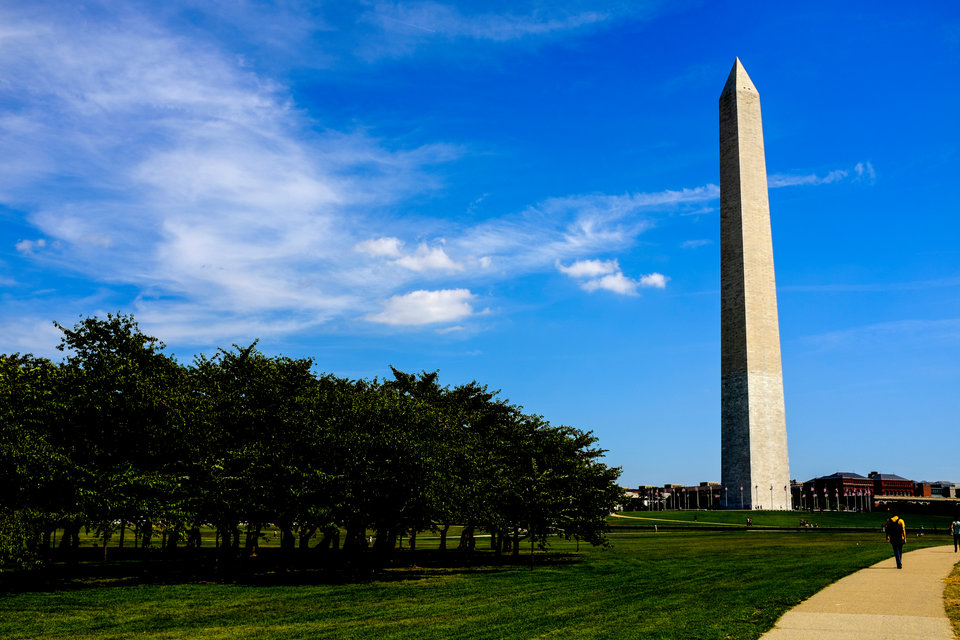Around the nation and the world people watched on March 23 and 24 as Republican lawmakers delayed a vote on repealing and replacing the controversial Affordable Care Act. Within Washington, D.C., the swirl of political maneuvering was constant and dizzying, and a cohort of St. Thomas Health Care MBA students and faculty had a front row seat for the whole thing.
“The timing was impeccable; Hollywood script writers couldn’t have written a better script,” said faculty member Scott Kulstad. “Just being inside the Capitol was quite an experience for both faculty and students. There was a lot going on, the news media was intense, the staffers and members of both chambers were walking back and forth. You could feel the tension in the air.”
Kulstad, other faculty members and students were in Washington, D.C., from March 22-24 for an annual trip that has marked the capstone for soon-to-be graduates of the 21-month MBA program. While each year’s trip promises to give students an intimate look at what enacting federal policy looks like and the chance to hear from those at the heart of it, this year’s cohort in particular saw firsthand, as student Poonam Kale put it, “a lot of sausage being made.”
“You can read, you can hear on the news, but being there suddenly opens your eyes. There are so many layers to [health care policy],” she added. “We saw why it is so political and so hard: There are so many entities involved in health care.”
Part of the bigger picture
A deeper understanding and appreciation of that fact is built into the framework of the Health Care MBA program at the Opus College of Business: The program emphasizes the diversity of the health care field in its curriculum and students.
“We bring in people with significant health care experience who are experts in their particular field, and really open their eyes to the world of business and how they can couple those skills to be a successful health care professional,” said program director Kate DiAna.
As a finishing note, this trip to Washington, D.C., pulls together almost two years of students delving into the many different areas of health care and its connections to business.
“I’ve often said that seminar ties all the classes into a nice package and puts a ribbon on it. You can’t talk about health policy without also understanding economics. You can’t talk about health policy without an understanding of finance … without a fundamental understanding of the laws and regulatory environment that shapes it,” Kulstad said. “It really ties so many different classes together and you can see the interaction of all of them when you’re in the heart of [federal] policy.”
Kale, a senior director of product management for Optum360 in Salt Lake City, Utah, said the trip – and the program as a whole – helped her think about the world in different ways than she had before.
“It made me aware of how I think about problems, how I think about problem-solving versus what my values are and where I stand. There are just so many layers. At a personal level, the state level, the federal level, and the question of, ‘Are we doing this for the common good?’” she added. “How do you see health care through a business lens, and business through a health care lens? It’s not all business. At the end of the day it’s a person. You have to make money, I get it. Companies close if they’re not profitable. But it is also about compassion. Health care is a human industry.”
That message came through in Washington, D.C., as students and faculty met with people such as Sen. Al Franken; FBI Director James Comey; former Sen. Norm Coleman; U.S. Rep. Tim Walz; Sen. John Barrasso; and many other influential members of the federal policymaking process.
“It’s one thing to read about health policy, to read about the Affordable Care Act or the replacement plan, it’s another thing to actually listen to the people who were directly involved in it or were indirectly but had direct knowledge of it,” Kulstad said.
“It’s a great opportunity for students to see how we got to where we are today and where we’ll go in the future,” DiAna added.
While the trip culminated without the witnessing of a final vote, the takeaways from Washington, D.C., and the program as a whole were almost too much to tally.
“The way I look at things today is vastly different than I did two years ago,” Kale said.







